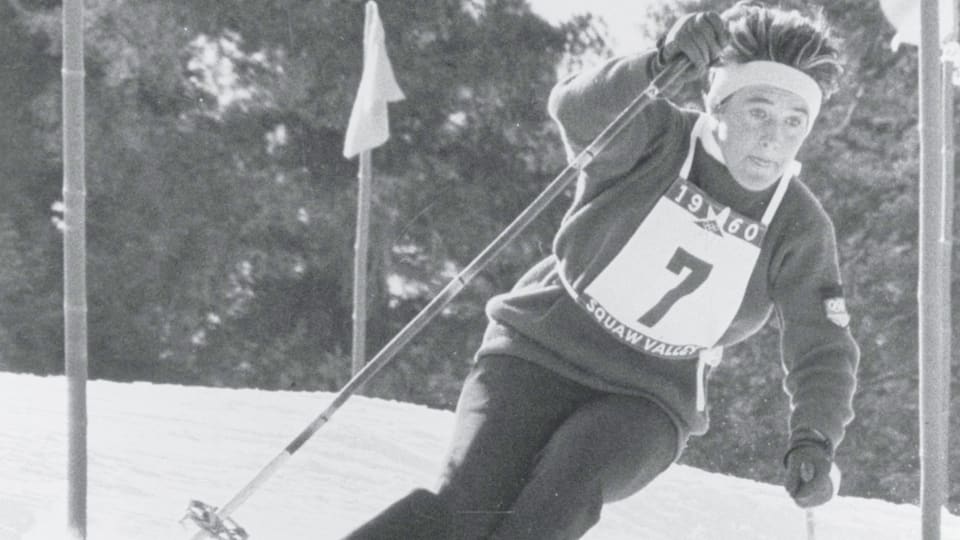Biebl writes her name in women’s Alpine history
Competing at a time when the Alpine Skiing World Cup had yet to come into existence (it made its debut 1967), the Bavarian-born Heidi Biebl was one of the greatest skiers of her generation and the finest German since Christl Cranz, the queen of the slopes in the 1930s who had been crowned the first female Olympic Alpine skiing champion at Garmisch-Partenkichen 1936.

In total Biebl racked up 30 wins in all disciplines on the international circuit through to 1966 and was also crowned German champion 15 times.
She had only just turned 19 when she took to the start gate for the women’s downhill at Squaw Valley 1960, a race held on KT-22 on a 1,828-metre course with an elevation drop of 553 metres and which featured the Airplane Turn, a deceptive 90-degree left turn that caught many a skier out.
Starting eighth, Biebl had the USA’s Penny Pitou’s time of 1:38.6 to beat. She did so by a full second to claim the gold medal, with Austria’s Traudl Hecher finishing just behind Pitou in third.
Recalling her win, Biebl said: “It was a gorgeous day for skiing. The sky was blue, the sun was shining and the piste was in perfect condition. I went up on the ski lift with my friend and rival Anne-Marie Waser of Switzerland and when I got to the start I just tried to keep away from the crowds and summon up all the concentration I needed for the race. I wasn’t any more nervous than I usually was.”
She added: “I wasn’t thinking about winning, just about the course and getting down it as lightly as I could. When I reached the finish, some of the people in the know said I’d won, but it was a very strong field that day and any number of people could have won the race. In the end, I came away with the fastest time but it was an anxious wait for the last skier to cross the line.
Biebl, who for many years remained Alpine skiing’s youngest Olympic champion, later described the moments after her stunning win: “It took a while for it to sink in. The biggest thing for me was being able to contact my mother in Bavaria via a radio broadcast. Everything just came together then and I realised just what a special day it was.
“The Olympics doubled up as the skiing world championship at the time, which meant I was the Olympic and world champion in one,” she continued. “When I won, I didn’t realise what it meant to come out on top in a competition like that, though I gradually became aware of the advantages and disadvantages of being the champion.
“It gave me the chance to open a ski school, a hotel and a sports centre, but there was also a lot of pressure from the public. People started expecting me to win and they thought I always would. It’s not easy to be in the public eye, but being the Olympic champion is something very special, more special than anything in fact, because you know that you’ve made a little bit of history.”
Biebl finished 21st in the slalom at Squaw Valley and 37th in the giant slalom, and she returned to the Olympic stage at Innsbruck 1964, finishing fourth in both the downhill and the slalom. Her career came to an end following a difference of opinion with her national federation shortly before the 1966 FIS World Championships in Portillo (CHI).
Biebl continues to run a ski school, sports centre and guest houses in her home village of Oberstaufen, where a street is named in her honour.
